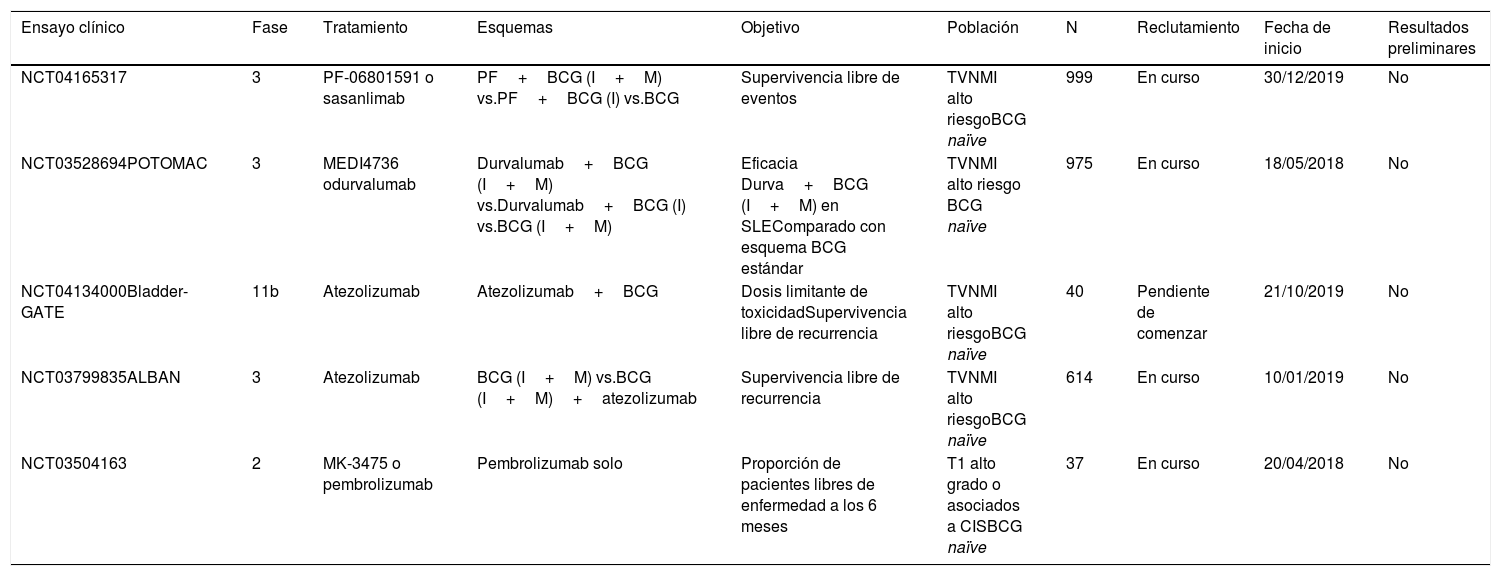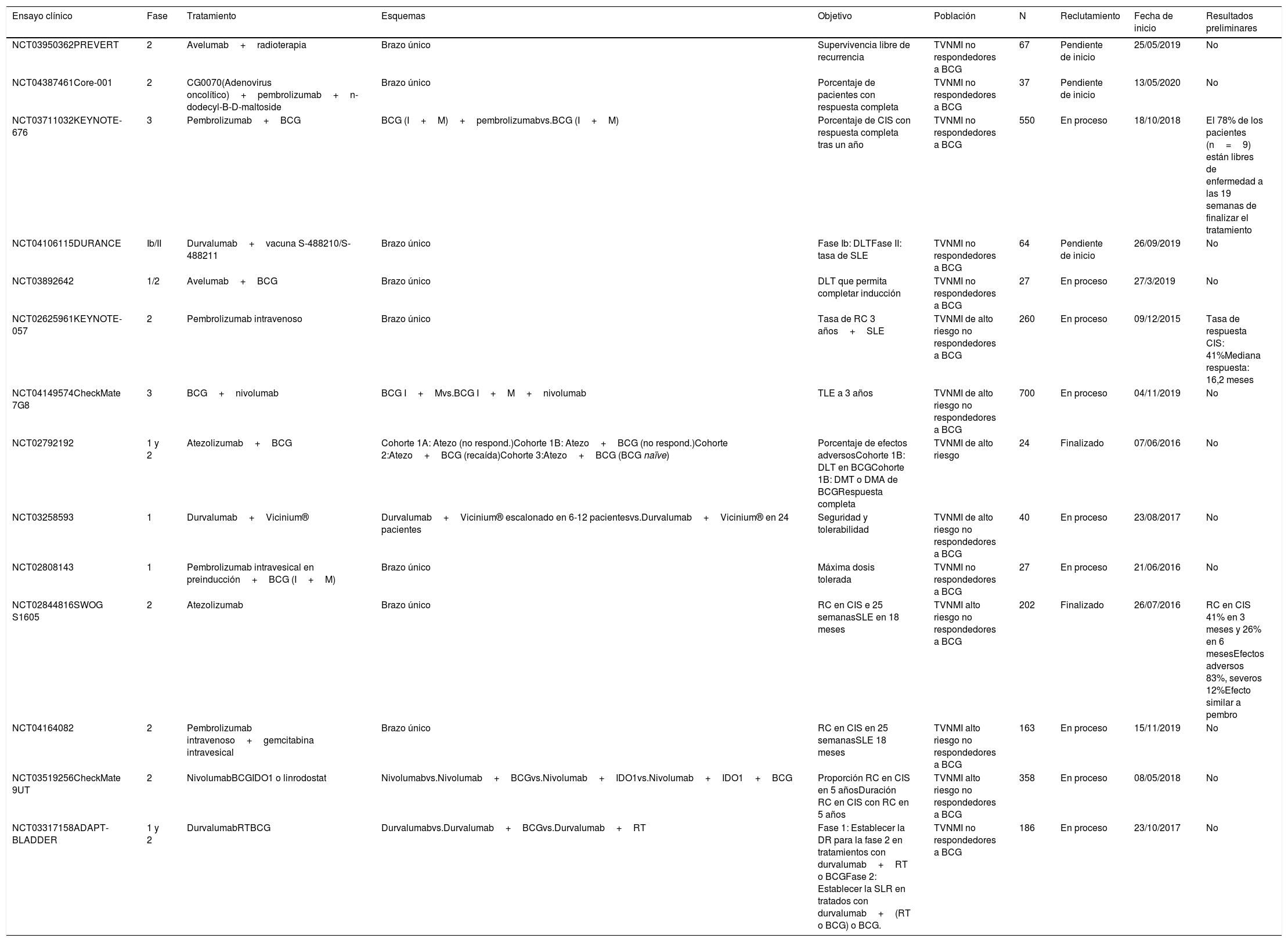El tratamiento estándar de los tumores de vejiga no músculo-invasivos (TVNMI) de alto riesgo es la resección transuretral de vejiga e instilaciones de bacilo de Calmette-Guérin (BCG). Sin embargo, las respuestas son limitadas. Es necesario buscar nuevas alternativas terapéuticas para estos pacientes. Los resultados en tumores avanzados de los inhibidores de puntos de control han dado lugar al interés en el uso de estas moléculas en TVNMI.
MétodosHemos realizado una búsqueda en PubMed utilizando los términos «bladder cancer» y «check point inhibitors». Para la búsqueda de ensayos clínicos, hemos utilizado los buscadores clinicaltrials.gov y clinicaltrialsregister.eu
ResultadosActualmente hay 5 ensayos en marcha de pacientes no tratados con BCG. No hay resultados disponibles. En cuanto a los pacientes no respondedores a BCG, existen 15 ensayos en marcha, 2 de ellos con resultados preliminares: el Keynote 057, con resultados prometedores con pembrolizumab y que ha llevado a la FDA a aprobar su uso en enero de 2020 y el SWOG S1605, que ha mostrado resultados similares con atezolizumab. Otros ensayos administran estos fármacos intravesicalmente, una opción atractiva si resulta efectiva para el control oncológico.
ConclusionesLos inhibidores de puntos de control ofrecen una nueva posibilidad para los pacientes no respondedores al BCG. Probablemente en el futuro se podrán usar en pacientes no tratados previamente con BCG. Los datos preliminares de ensayos clínicos muestran resultados prometedores. Es importante un buen conocimiento de estas moléculas por los urólogos y la formación de equipos multidisciplinares para ofrecer las mejores alternativas terapéuticas a estos pacientes.
The standard treatment for high-risk non-muscle invasive bladder tumors (NMIBT) is transurethral resection of the bladder and BCG instillations. However, responses are limited, and new therapeutic alternatives for these patients are required. The results of checkpoint inhibitors in advanced tumors have led to interest in the use of these molecules in NMIBT.
MethodsWe conducted a search on PubMed using the terms «bladder cancer» and «check point inhibitors». We have used the search engines clinicaltrials.gov and clinicaltrialsregister.eu for the search of clinical trials.
ResultsThere are currently 5 trials in progress on BCG untreated patients. There are no results available. As for BCG non-responders, there are 15 ongoing trials, two of them with preliminary results: Keynote 057, with promising results with pembrolizumab, which has led the FDA to approve its use in January 2020, and SWOG S1605, which has shown similar results with atezolizumab. Other trials are using intravesical administration of these drugs, which is an attractive option if it is effective for cancer control.
ConclusionsCheckpoint inhibitors offer a new possibility for patients who do not respond to BCG. These will probably be used in the future for previously BCG untreated patients. Preliminary data from clinical trials show promising results. A good understanding of these molecules by urologists and the creation of multidisciplinary teams are crucial in order to offer the best therapeutic alternatives to these patients.
Artículo
Comprando el artículo el PDF del mismo podrá ser descargado
Precio 19,34 €
Comprar ahora














